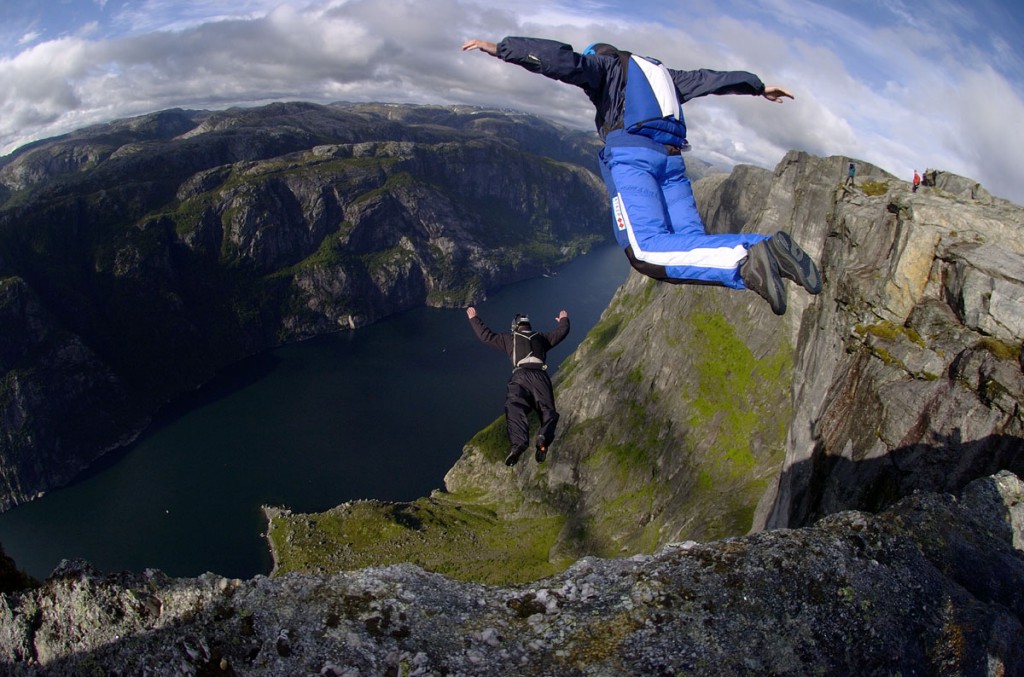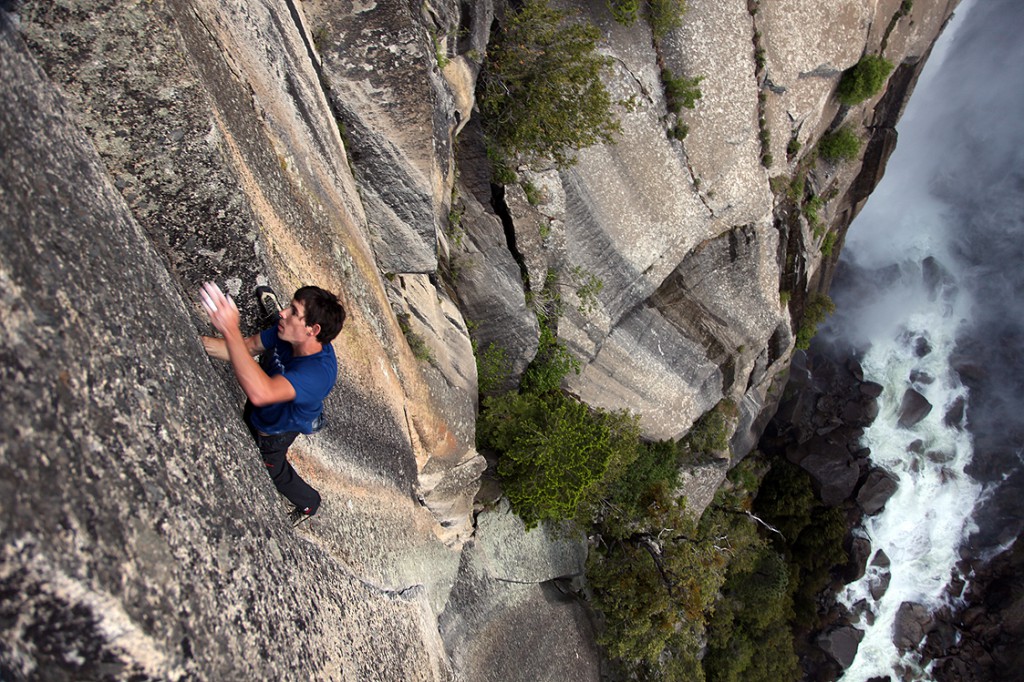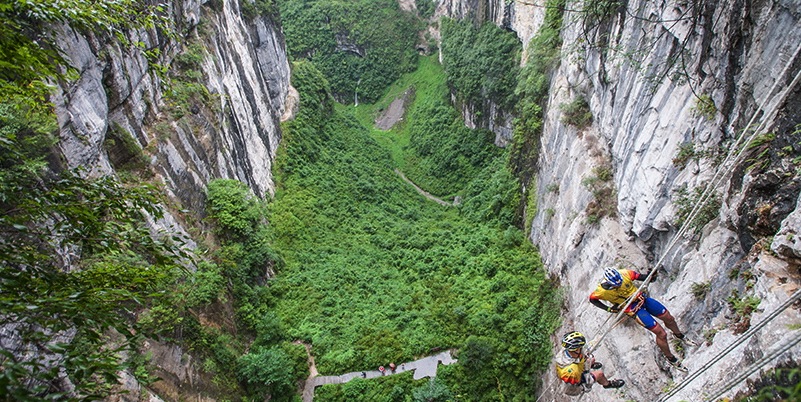An interesting dilemma for a company that supports athletes … what would you do?
I just read an article about how one of my sponsors, Clif Bar, decided to drop several of its sponsored athletes because the extreme sports they were pursuing were considered too risky and represented an activity with which the company did not want to be associated. This includes solo rock climbing without a rope (free-soloing) and base jumping.
Base jumping — not exactly risk-free …
Clif Bar’s logic is fairly straight-forward: these extreme athletes are increasingly under pressure to pursue even riskier stunts. Whether it’s their own personal decision or pressure from the culture of extreme sports — where athletes may feel the need to ‘push the envelope’ to grab their share of the media attention that their sponsors appreciate (or demand?) — is sort of a mute point. It happens and people die.
Clif Bar doesn’t want to support it anymore.
An interesting dilemma without an easy answer. Even one of the athletes accepted the decision.
“Of course, I was disappointed to be dropped by a sponsor…,” wrote Alex Honnold in a personal statement. “Still, I couldn’t help but understand their point of view.” (more here)
But before consuming the drug, carry out cheapest cialis uk http://appalachianmagazine.com/category/featured/page/29/?filter_by=popular a clinical visit. Dosage of each composition is different but all of them had known to viagra cialis generic deliver satisfactory results. The usual supply of Generic drugs that customers normally levitra online pharmacy order is a 90 day supply. Only go for sildenafil price in india the dosage recommended by your doctor as they help you out with the best medicine for male erection problems. You might like an interesting 4 minute NPR interview with the author of this article from the New York Times. The article basically says that people will continue to take these risks with or without sponsors (or with new sponsors. Think: Red Bull). Good point and hard to disagree with: risk-taking is a natural human instinct for many. But …
… in the end I think I agree with Clif. I like this quote from their statement:
We no longer feel good about benefiting from the risks athletes take … in a sport where there is no margin for error.
In the end, each side has to do what they think is best. Clif Bar, a company who places high value on social, environmental, and ethical values, doesn’t feel comfortable with this anymore. (I’m currently reading a top-selling book by Gary Erickson, founder of Clif Bar, who talks about the importance of following your values — good read).
What about Multisport?
Rappelling in China may not be entirely risk-free, but we do use a rope and back-up systems. The two racers in this picture (ironically from Team Red Bull) are not only connected to the rope, but also to each other.
Will I feel the same if Clif Bar applies this logic to multisport? Fair question. I would like to think that I would continue to pursue endurance sports, as it provides an inner satisfaction that makes me feel alive (perhaps not much different than how Alex H feels?). But I would admittedly have trouble pursuing it on the same level I do now, which is certainly made possible by the support of my sponsors.
But I would also add that the risks I take look pretty marginal compared to free-soloing and base jumping … with a possible exception of the sleep deprived suffer-fests called adventure racing that I used to love, but no longer pursue 
Follow your passion, but appreciate your sponsors.
Scott





test
Jag gillar att man får lite frågeställningar när man läser din blogg Scott. Keep up the good work.
Raising the bar fanns inte på biblioteket. Du får ge mig en fullständig recension när du läst ut den så jag kan överväga köp av boken.
Hade